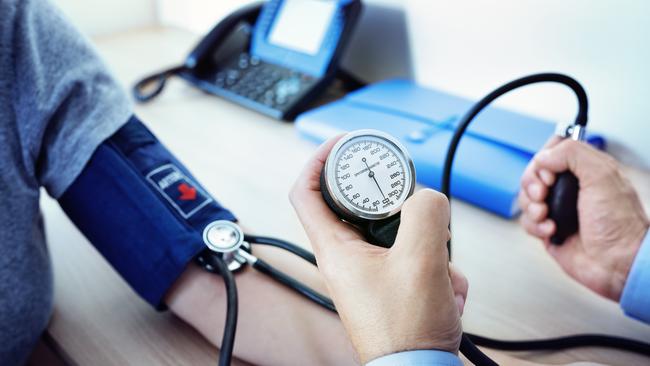Irregular heartbeat? Why it matters and what to do about it
Exercise in midlife can help prevent atrial fibrillation, reveals a new study. There are 1.4 million suffering from it in the UK alone, and can increase chance of stroke by five times.

If you need yet another reason to be more active in midlife, cardiologists are warning that a lack of fitness raises the risk of atrial fibrillation (AF), an irregular heartbeat that, left untreated, can lead to blood clots and a five times greater risk of having a stroke.
AF occurs when electrical impulses that trigger muscle contractions of the heart misfire chaotically. Researchers from the National Yang Ming Chiao Tung University in Taiwan tracked 15,450 people, none of whom had AF at the start of the study, assessing their fitness over a decade. The results, reported at the European Cardiology Congress (ECC), showed that the fittest participants, mostly in their fifties when the trial began, were significantly less likely to develop AF.
“When someone is sedentary and overweight, their heart is being put under stresses just by virtue of working harder to maintain a body that is heavier than it should be,” says Professor Dhiraj Gupta, a cardiologist at Liverpool Heart and Chest Hospital, who presented his findings on AF treatment and reversal at the ECC. “That presents a huge physical strain for the heart that can result in AF.”
In those with the condition, the normal pumping action in the two upper chambers of the heart, called the atria, is disrupted, resulting in an erratic and sometimes alarmingly rapid heart rate of up to 300 beats a minute or more. Often there are no warning signs other than unusual palpitations or heartbeat. Dr Jonathan Behar, consultant cardiologist and electrophysiologist at HCA London Bridge Hospital, says AF “is associated with a number of medical problems, including strokes, dementia and heart failure”. He describes its prevalence in the UK, where it affects 1.4 million people, as “an epidemic with a vast number of the population having it, including one in five people over 80”.
Age and genetics are unavoidable risk factors, but the latest study adds to the emerging evidence that lifestyle habits play a role in the rise of AF among the middle-aged. “Essentially, AF is the result of the atrium chambers of the heart getting bigger, or stretching, and the electrical connections become worse,” Behar says. “If you do things that increase general pressure in the heart such as smoking, underexercising or gaining excess weight and eating too much salt, that can stretch the atrium chambers and increase the risk of AF.” Here’s what you need to know.

A smartwatch will help keep tabs on your heart rhythm
Consider your smartwatch as a portable ECG on your wrist. Devices such as the Apple Watch can be set to flag up any abnormalities with your heart rate. “This is a great idea, as if your heart rate does go excessively high you get a warning anyway,” Gupta says.
A clinical trial validated Fitbit devices for recording heart rhythm data during sleep, which can then be analysed retrospectively for signs of AF. Don’t become obsessed with results - once a week is enough and the test takes about 30 seconds to complete.
Does the jitters after a coffee indicate AF?
Getting the jitters after drinking an espresso does not mean you have AF. In fact the British Heart Foundation suggests that any source of caffeine, coffee included, is not a cause of AF and “drinking four to five cups of tea or coffee a day shouldn’t increase your risk of developing heart disease”.
Is it OK to have a glass of wine with dinner?
Alcohol is among the biggest stressors for AF. “If I see someone in their fifties or younger with AF I almost know for a given that alcohol is involved,” Gupta says. Just one small glass of wine a day, a single shot of spirits or a small bottle of beer is enough to raise the risk of AF by 16 per cent compared with nondrinkers, according to a 14-year study published in the European Heart Journal. “Alcohol can be directly toxic to the heart,” Behar says. “By having it in excess it can cause damage and the heart can be weakened.”

Is it possible to reverse AF?
AF is reversible for some provided it is spotted early. Last week, Gupta presented an updated review of evidence after a separate study he had published in the European Heart Journal three years ago that showed weight loss in overweight people with AF slows progression and in some cases reverses the condition.
“Plenty of animal and lab-based studies have shown that AF is reversible with weight loss,” he says.
Is any other treatment available?
The longer people have AF, the more the heart gets used to it and the worse it becomes. “The aim is to break that spiral by getting people to spend as much time as possible in a normal rhythm,” Gupta says.
In the past, for people who do not respond to lifestyle changes the main route to achieving this was through tablets including beta blockers or Amiodarone to control heart rate and rhythm (although they are not without side-effects).
Over the past decade, catheter ablation, a keyhole surgery technique in which thin flexible electrical catheters are inserted via small tubes into the veins near the groin and used to burn heart tissue, has emerged as the most effective treatment.
“It creates an electrical insulation barrier in the heart that prevents these faulty electrical signals from causing arrhythmia,” Gupta says. “It’s extremely effective and takes only about 90 minutes to perform.”
Doctors stress any treatment needs to come with lifestyle changes too.
Extreme exercise can also cause AF
“Regular exercise reduces the resistance through which the heart has to pump, which is a good thing, but excess of anything is not good,” Behar says. “In people who do ultramarathons there are changes to the heart, some of which may be negative.”
One recent study of 942 athletes mostly in their fifties, published in the Clinical Journal of Sport Medicine, found the middle-aged and older ultra-runners, cyclists, swimmers and triathletes who developed AF were at a greater risk of stroke than the general population.
“It’s unfair, but these apparently superfit people who take good care of their bodies may also be placing a toll on the heart that predisposes them to AF,” Gupta says.
“In patients who do develop AF as a consequence of overexercising in middle age, their heart is responding to being stressed beyond its means,” Gupta says. “The human body wasn’t designed to run hundreds of miles a week and it can take its toll.”
THE TIMES







To join the conversation, please log in. Don't have an account? Register
Join the conversation, you are commenting as Logout